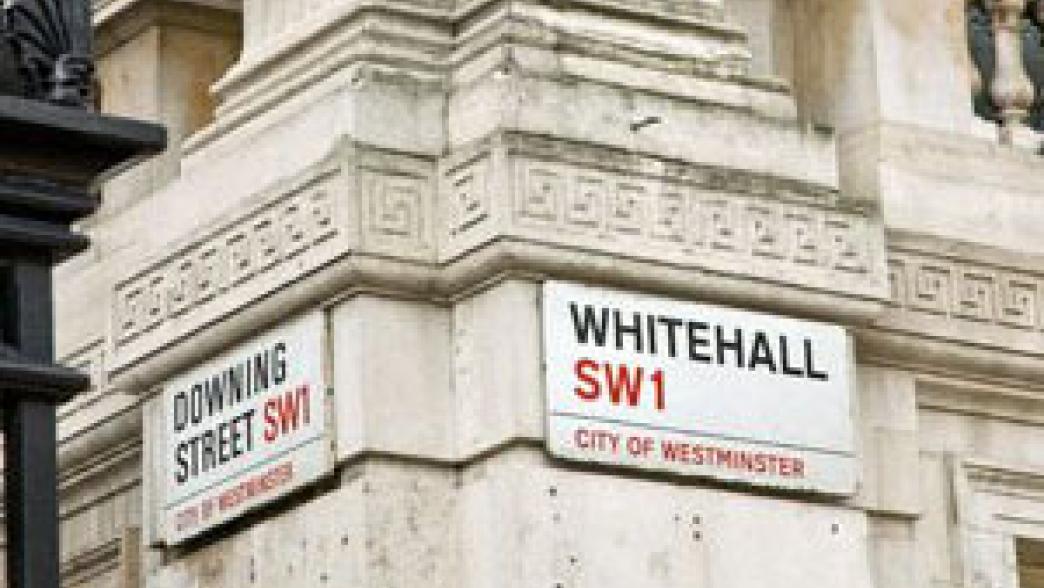
Dr Catherine Haddon says that recent controversies around the use of purdah show that the current guidance is either not clear or not being applied in the right way – we need a review.
The election guidance for civil servants during the pre-election period (also known as purdah) is meant to protect them from being drawn into partisan politics during an election campaign. But the guidance – or rather confusion about it – is putting the civil service under the spotlight.
There have been three significant complaints about purdah during this election so far. Both centre around the criticism that purdah is being used to stifle debate and avoid potentially controversial government information coming out.
Whether it is just down to confused interpretation, an over-zealous caution at the heart of government, or some other reason, it is now bringing the civil service into the political arena at a time when it is supposed to be removed from it. Lack of clarity around purdah rules continues to breed confusion among government bodies, frustration for scientists and the normal flow of statistical and information and, most significantly, has brought the whole purpose of purdah into disrepute.
Even the Cabinet Secretary, Sir Jeremy Heywood, seems to have realised that the purdah guidance may need revisiting.
Strike one: air pollution
The first controversy began over whether the Government should produce an air pollution strategy that had been mandated by a High Court decision. Just after the surprise election was announced, the Government said the consultation would contravene purdah guidance and it should be delayed until after the general election on the 8 June.
The court saw differently, arguing that the civil service’s own guidelines state that when there are "exceptional circumstances" the strategy could be published. The High Court eventually agreed to set publication of a draft plan for after the local elections, which the Government has now published.
Strike two: science
The second critique comes from the scientific community. Last week, several scientific bodies wrote to the Cabinet Secretary, Sir Jeremy Heywood, to complain about purdah being applied to scientists who sit on government advisory councils, are members of arm’s- length bodies or are funded by research councils. While the civil service guidance does not apply to them directly, such bodies with links to government were adopting the same principles or felt pressure from government to do so.
The scientists refer to researchers not being able to provide comments to a climate change study, scientists turning down speaking commitments, and not being able to comment on the air quality plan.
Sir Jeremy has since replied to say the guidelines are advisory and down to interpretation. He adds that the research councils put out their own guidance, which says that researchers could speak out, but under their own university affiliation.
Strike three: NHS data
The final area of controversy is over published statistics. On the 18 May NHS Improvement financial data for NHS trusts was delayed. Again, purdah rules were invoked.
NHS Improvement told the BBC that a date for the publication had not been set before the election was called, and that it had consulted the Department of Health who said publishing them would now breach purdah guidance. The guidance does state that “regular pre-announced statistical releases… will continue to be issued and published”, but that where pre-announcement had not given a “precise day” they should be held back until after the election.
But it is not clear if this rule has been applied to the hundreds of other statistics published since the election was called, and if these all had a “precise day” pre-announced.
The guidance itself states that the “greatest care must continue to be taken to ensure that information is presented impartially and objectively”. But by holding data back, it has made the information of NHS trusts' performance a political issue, undermining the point of avoiding information being used in this way.
After the controversies around the application of purdah during the Scottish and EU referendums (when it was argued that the civil service was being used inappropriately to support the Government’s campaign position), the head of the Civil Service seems to be more wary this time around. Sir Jeremy says he will reflect on the guidance post-election, but has rejected a wider review or consultation. It may well be that others do that for him.